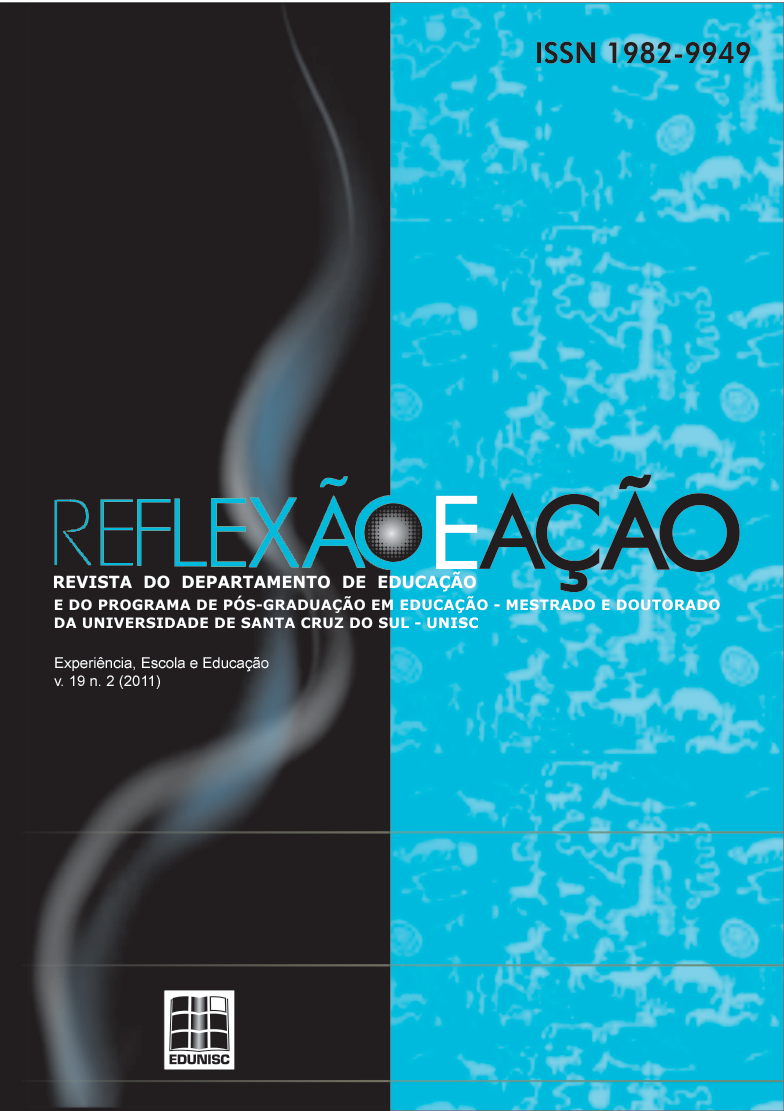CONDITIONS OF (IM)POSSIBILITY OF EXPERIENCE IN JOHN DEWEY AND JORGE LARROSA: some approaches
DOI:
https://doi.org/10.17058/rea.v19i2.2204Keywords:
EducaçãoAbstract
Abstract: This essay aims at reflecting on some conditions in order for the event or the construction/reconstruction of experience may be part of the process of subject constitution. Two major theoretical foundations underscore the present approach: John Dewey and Jorge Larrosa. Such authors have great importance for the field in terms of questioning the concept of experience and, therefore, they needed our attention. Among the theories of John Dewey (1859-1952), an American philosopher who left a huge legacy in Educational Philosophy, we find the defense of an educational process based on the idea of education as construction and reconstruction of experience. Jorge Larrosa is a Professor of Philosophy of Education at the University of Barcelona, Spain, and author of various works on education. Among his publications, we can highlight the following: “Notes on the Experience and Knowledge of Experience” (2002) and “Knowledge and Education” (2007), which were referred in this paper due to the property the concepts of experience and education are used. The Deweyan problematization on the concept of experience is wide. Many works support this theme; however, only some of them are cited here as the main ones: Experiência e educação [Experience and Education] (1971), Como pensamos: como se relaciona o pensamento reflexivo com o processo educativo [How We Think] (1959a), Democracia e educação [Democracy and Education] (1959b), and Vida e educação [Life and Education] (1973).Downloads
Downloads
Published
How to Cite
Issue
Section
License
The submission of originals to this journal implies on the transference, by the author(s), of the printed and digital publishing rights. The author´s rights to the published articles are the author´s, the journal has the rights over the first publication. The author(s) can only use the same results in other publications, indicating clearly that this journal was the original publisher. Since we are an open access journal, the free use of articles is permitted for educational and scientific applications, as long as they inform the source according with the CC-BY license from Creative Commons.


